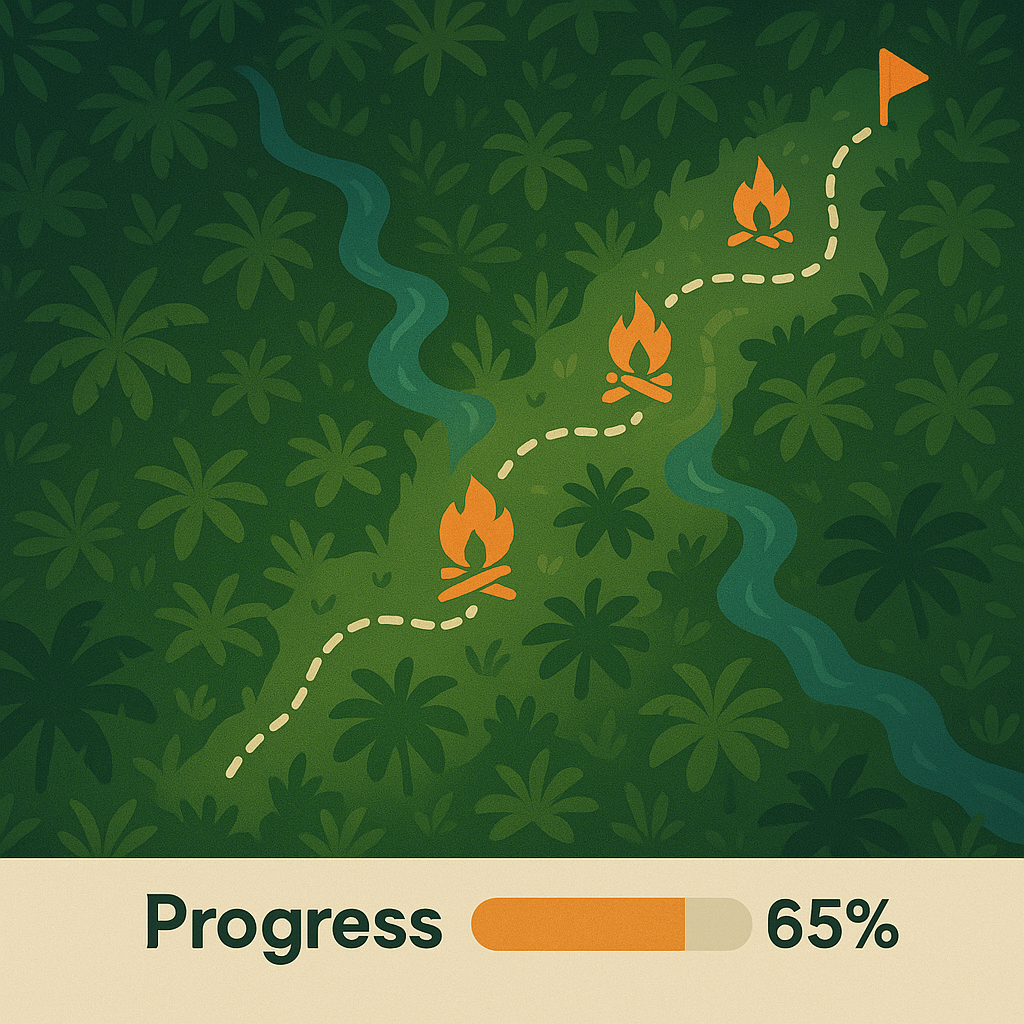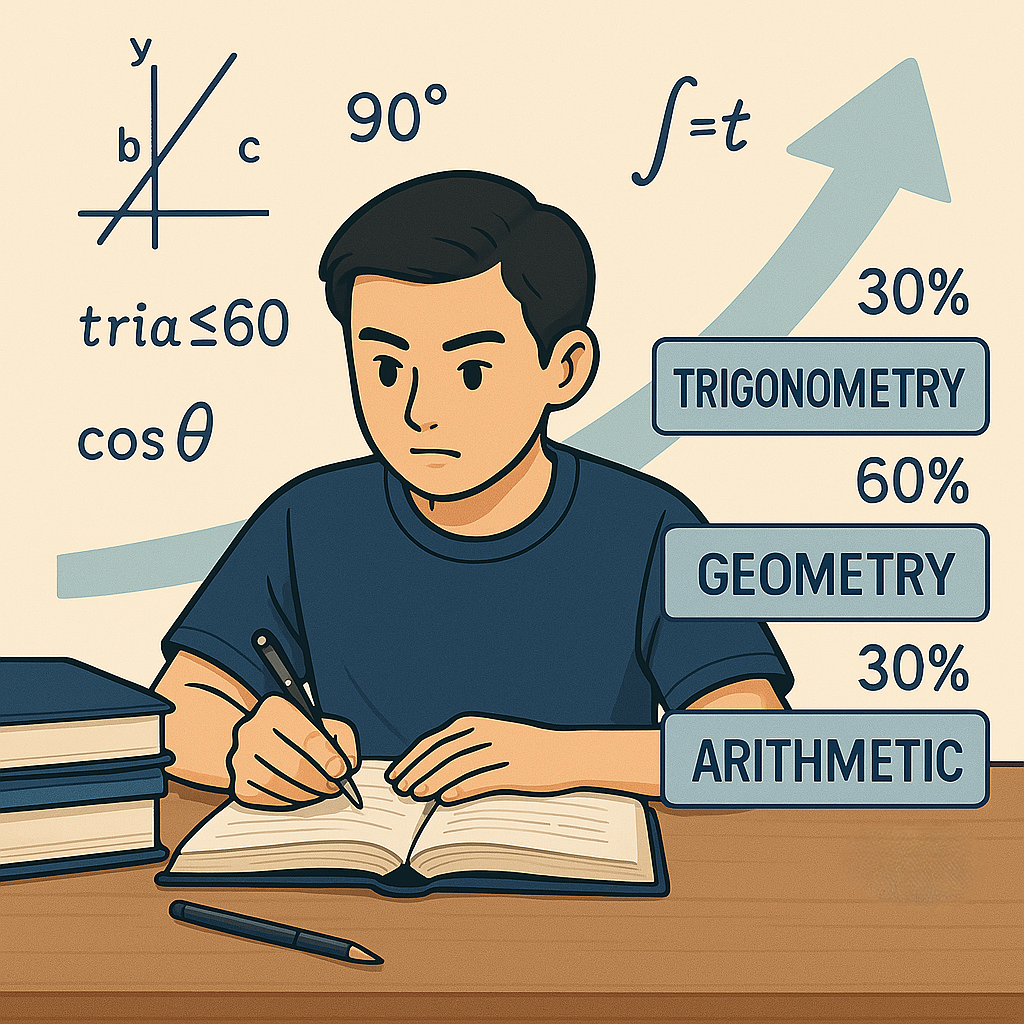Progress
Definition
The term "progress" describes forward movement toward a goal or an improvement in a situation, condition, or skill.
Parts of Speech
- Noun
- Verb
Pronunciation
American English
- Noun: IPA Pronunciation: /ˈprɑː.ɡrɛs/
- Verb: IPA Pronunciation: /prəˈɡrɛs/
- Respelling: Noun: PRAH-gress, Verb: pruh-GRESS
British English
- Noun: IPA Pronunciation: /ˈprəʊ.ɡrɛs/
- Verb: IPA Pronunciation: /prəˈɡrɛs/
- Respelling: Noun: PROH-gress, Verb: pruh-GRESS
Etymology
The word "progress" originates from the Latin "progressus," meaning "a going forward," derived from "progredi" (to advance), formed by "pro-" (forward) and "gradi" (to step). It entered Middle English in the 15th century via Old French.
Derivatives
- Progressive (adjective/noun)
- Progression (noun)
- Progressiveness (noun)
- Progressively (adverb)
- Regress (verb/noun)
Synonyms
- Advancement
- Improvement
- Development
Antonyms
- Regress
- Stagnation
- Decline
Usage
The term "progress" is widely used in contexts such as education, technology, and social movements. For example, "The team made significant progress on the project," or "She hopes to progress in her career."
Related Terms
- Improvement: The process of making something better.
- Development: A process of growth or advancement.
- Advancement: Forward movement or promotion in rank or status.
Detailed Definitions
Noun
- Forward movement toward a goal or destination:
- Example: "The expedition made slow but steady progress through the jungle."
- Improvement or development in a situation or skill:
- Example: "The student's progress in mathematics was remarkable."
Verb
- To move forward or advance in position, condition, or time:
- Example: "The construction is progressing according to schedule."
- To improve or develop in quality, skill, or condition:
- Example: "She has progressed significantly in her piano lessons."
progress



🇨🇳 Mandarin
- 进步 (Progress in terms of improvement): Jìnbù
- IPA Pronunciation: /tɕînpʰû/
- Respelling in English: Jin-bu
- 进程 (Progress in terms of a process): Jìnchéng
- IPA Pronunciation: /tɕîntʂʰə̂ŋ/
- Respelling in English: Jin-cheng
🇮🇳 Hindi
- प्रगति (Progress in general): Pragati
- IPA Pronunciation: /prəɡəti/
- Respelling in English: Pra-ga-ti
- उन्नति (Progress in terms of improvement): Unnati
- IPA Pronunciation: /ʊnnəti/
- Respelling in English: Un-na-ti
🇪🇸 Spanish
- Progreso (Progress in general)
- IPA Pronunciation: /pɾoˈɣɾeso/
- Respelling in English: Pro-gre-so
- Avance (Progress in terms of advance)
- IPA Pronunciation: /aˈβanθe/
- Respelling in English: A-van-the
🇫🇷 French
- Progrès (Progress in general)
- IPA Pronunciation: /pʁɔɡʁe/
- Respelling in English: Pro-gre
- Avancement (Progress in terms of advancement)
- IPA Pronunciation: /avãsmã/
- Respelling in English: A-van-se-man
🇸🇦 Modern Standard Arabic
- تقدم (Progress in general): Taqaddum
- IPA Pronunciation: /taqaddum/
- Respelling in English: Ta-qad-dum
- تطور (Progress in terms of development): Tatwir
- IPA Pronunciation: /tatwir/
- Respelling in English: Tat-wir
🇧🇩 Bengali
- অগ্রগতি (Progress in general): Ogragati
- IPA Pronunciation: /ɔɡrɔɡɔti/
- Respelling in English: O-gro-ga-ti
- উন্নয়ন (Progress in terms of development): Unnayan
- IPA Pronunciation: /unːɔjɔn/
- Respelling in English: Un-na-yan
🇷🇺 Russian
- Прогресс (Progress in general): Progress
- IPA Pronunciation: /prɐˈɡrʲes/
- Respelling in English: Pro-gres
- Продвижение (Progress in terms of advancement): Prodviženie
- IPA Pronunciation: /prədvʲɪˈʐenʲɪje/
- Respelling in English: Prod-vi-zhe-ni-ye
🇵🇹 Portuguese
- Progresso (Progress in general)
- IPA Pronunciation: /pɾoˈɣɾesu/
- Respelling in English: Pro-gres-su
- Avanço (Progress in terms of advance)
- IPA Pronunciation: /ɐˈvɐ̃su/
- Respelling in English: A-van-su
🇮🇩 Indonesian
- Kemajuan (Progress in general)
- IPA Pronunciation: /kəmadʒuan/
- Respelling in English: Ke-ma-juan
- Perkembangan (Progress in terms of development)
- IPA Pronunciation: /pərkəmbaŋan/
- Respelling in English: Per-kem-ban-gan
🇩🇪 German
- Fortschritt (Progress in general)
- IPA Pronunciation: /fɔʁtʃʁɪt/
- Respelling in English: For-tsch-ritt
- Weiterentwicklung (Progress in terms of development)
- IPA Pronunciation: /ˌvaɪ̯təʁʔɛntˈvɪklʊŋ/
- Respelling in English: Wei-ter-ent-wick-lung
🇯🇵 Japanese
- 進歩 (Progress in terms of improvement): Shinpo
- IPA Pronunciation: /ɕiɴpo/
- Respelling in English: Shin-po
- 進行 (Progress in terms of a process): Shinkō
- IPA Pronunciation: /ɕiŋkoː/
- Respelling in English: Shin-ko
🇻🇳 Vietnamese
- Tiến bộ (Progress in terms of improvement)
- IPA Pronunciation: /tjən˧ˀ˨ʔ bo˧ˀ˨ʔ/
- Respelling in English: Tien bo
- Tiến trình (Progress in terms of a process)
- IPA Pronunciation: /tjən˧ˀ˨ʔ tʂɨn˧ˀ˨ʔ/
- Respelling in English: Tien trinh
🇰🇷 Korean
- 진보 (Progress in terms of improvement): Jinbo
- IPA Pronunciation: /tɕinbo/
- Respelling in English: Jin-bo
- 과정 (Progress in terms of a process): Gwajeong
- IPA Pronunciation: /kwa.dʑʌŋ/
- Respelling in English: Gwa-jeong
🇹🇷 Turkish
- İlerleme (Progress in general)
- IPA Pronunciation: /ileɾˈleme/
- Respelling in English: Iler-le-me
- Gelişme (Progress in terms of development)
- IPA Pronunciation: /ɟeˈliʃme/
- Respelling in English: Ge-lish-me
🇵🇰 Urdu
- ترقی (Progress in general): Taraqqi
- IPA Pronunciation: /t̪əɾəqqi/
- Respelling in English: Ta-raq-qi
- پیش رفت (Progress in terms of advance): Pesh raft
- IPA Pronunciation: /peːʃ ɾəft̪/
- Respelling in English: Pesh raft





